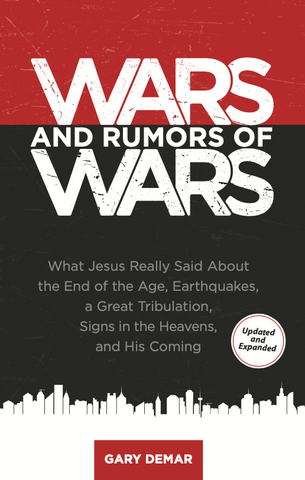While the Creeds and Confessions take us so far on the topic of eschatology, so many of the proof texts used to support their arguments are misplaced. Other than a future judgment of the living and the dead and the resurrection of the body/dead, and that God’s “kingdom will have no end … and the life of the world to come,” little else is said about eschatology (i.e., future things) in most historic creeds and confessions even though there is much more on the topic in the Bible.
Gary received a letter signed by several individuals looking for answers to three specific questions. In response, he recorded several podcasts—five in all—to give his side of the “controversy” and why he won’t simply answer their questions. The heart of the matter is what does the Bible teach, not what does Gary believe.
The letter sent to Gary became an entire website with a condemnation of certain aspects of what the creators believe to be “hyper-preterism.” A few hundred individuals signed it, but the most relevant part of the statement is that Scripture verses have finally been included, giving Gary a place to begin interacting with both the original three questions and the statement.
Critics on Facebook keep telling Gary that the three questions are “so simple,” which actually reveals they haven’t studied the issue in any sort of depth. Gary responds by looking at a few of the Bible verses used in the “Unorthodox Eschatology” statement. They use 2 Peter 3, 1 Thessalonians 4, and 2 Thessalonians 1 as “end of the world” proof passages, but problems arise when you 1) read them in context, and 2) look at how some of the signers have interpreted these passages in contradictory ways.
Gary continues examining several of the passages in Acts (17:30-31 and 1:6-11) mentioned as proof texts in the Unorthodox Eschatology statement. In Acts 17, we have three groups of people: the Thessalonians, the Bereans, and the Athenians. One group was mentioned as being “more noble” for their reception of the Apostle Paul and his teaching. Which one are you?
Gary concludes his response with this episode. He discusses some interesting background information about a few of those demanding answers from him, as well as the Nicene Creed, and a few passages regarding resurrection. In the end, his appeal is the same: the Church needs an ecumenical council on eschatology, similar to what happened in early church history over the humanity and divinity of Jesus.

Wars and Rumors of Wars
A first-century interpretation of the Olivet Discourse was once common in commentaries and narrative-style books that describe the fall of Jerusalem in AD 70. There is also a history of skeptics who turn to Bible prophecy and claim Jesus was wrong about the timing of His coming at ‘the end of the age’ and the signs associated with it. A mountain of scholarship shows that the prophecy given by Jesus was fulfilled in exacting detail when He said it would: before the generation of those to whom He was speaking passed away.
Buy Now
